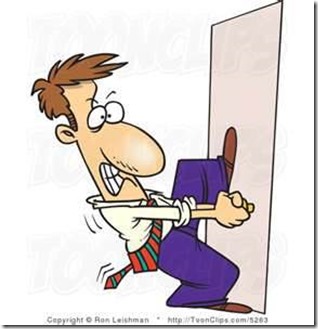Well, if you bought into Pianoteq solely to get your hands on the best possible virtual acoustic pianos that today’s modeling technologies allow to be created, I can fully sympathize with the frustration that must come from having to witness all these electric pianos, the harp and the toy piano being rolled out, while the acoustic pianos themselves — still Pianoteq’s prime assets to many users — may appear to be somewhat neglected of late.
And the simple fact that you went through the trouble of voicing your concern, Matthew, means that you feel quite strongly about it, and as such, I don’t think it should be ignored or dismissed.
Besides, I also happen to agree with you that there still is quite a bit of room for improvement in several aspects of Pianoteq’s acoustic piano modeling.
But that’s as far as I go along with you, I’m afraid.
As Niclas says, it’s not because we haven’t seen anything new, or improved, on the acoustic piano front in recent months, that they’re being neglected.
The emulation, through modeling, of everything that makes up the timbre and sonic behaviour of acoustic pianos, is an incredibly complex affair — mainly because the sound of a piano is so chaotically complex to begin with, and today’s technologies still only allow for little more than a fairly blunt appromixation of that — and even the smallest step forwards will often require months of rigorous testing, trial and error, failure after failure and then, perhaps, a sudden breakthrough and a first hint of success. After which it is time to look at the next challenge, and the lengthy process begins all over again.
Only to say: you’re witnessing pioneering work here. And pioneering work is often excrutiatingly slow. Nature of the beast. There’s no precedent for what Modartt are doing and every inch of progress is, by definition, hard-won and the result of a lot of time-consuming effort. Be patient. And be grateful that someone is doing something that is worth being patient for.
Secondly, I would suggest you find comfort and optimism in the fact that Pianoteq exists and that it is as good as it is. I’m not saying this to make you accept its current state of imperfection, far from it, I’m saying this because Pianoteq’s very existence, its remarkable improvement over the years and its curent quality — even if still imperfect — should tell you that Modartt have the exact same dreams, expectations and desire as you have: getting as close as possible to the perfect emulation of an acoustic piano.
In other words: be sure — 100% sure (trust me on this) — that what you’re hearing, Modartt hears too. Be sure that what you’re dissatisfied with, also irks Modartt. Be sure, in short, that hardly a day goes by when they’re not giving it all they’ve got to overcome the many hurdles and obstacles which still stand between them and their goal.
Thirdly, you may not be aware of it, but you are in fact a co-developer of the Pianoteq pianosound. We all are. And I mean this in two senses. Firstly, our feedback matters, both the positive and, perhaps even more so, the negative. But in order for our feedback to be truly valuable, it seems to me that we have the responsibilty — and this is the second sense of what I mean by co-developership — to learn the software as thoroughly as possible, so as to be able to discover its true limitations. See, it is deeply wrong in my opinion to complain about slow progress, on the one hand, and at the same time make very little progress yourself in fully mastering the software. Finding fault with what you perceive as Modartt’s lack of commitment to improve their acoustic pianos, while at the same time putting in very little effort yourself to get to really know (and maybe even improve) what’s currently possible with the software, is not making your case any stronger either. Put simply, I don’t think you’re quite entitled to express dissatisfaction with, say, Pianoteq’s ‘dynamic flatness’ if you’re not even sure that you fully grasp and understand the dynamic potential of Pianoteq.
And finally, none of us should, I feel, presume to know best what Modartt should be doing. They’re not just developers running a business, they’re also artists: as curious, fickle, unpredictable and peculiarly determined as artists invariably are. The Hohner Collection, for example, isn’t just another commercial product in my opinion — although accountants may look at it like that —, it is, to me, a challenge taken on, and an artistic and creative battle fought. Perhaps not entirely victoriously, as some people may feel, but still: yet more proof (if any was still needed) that we’re in the presence of hugely fascinating developments here.
Moreover, all these developments go hand-in-hand and interact as well: the modeling of the harp may well have resulted in new insights in how to improve the pianos, the creation of the electric pianos may well have brought about new techniques in refining the core acoustic algorithms … In fact, I am fairly certain that the development of the harp, the toy piano and the Hohners may well have needed to be completed first in order for the next Pianoteq acoustic piano to be better than the last one was.
_
Last edited by Piet De Ridder (09-10-2015 07:51)
